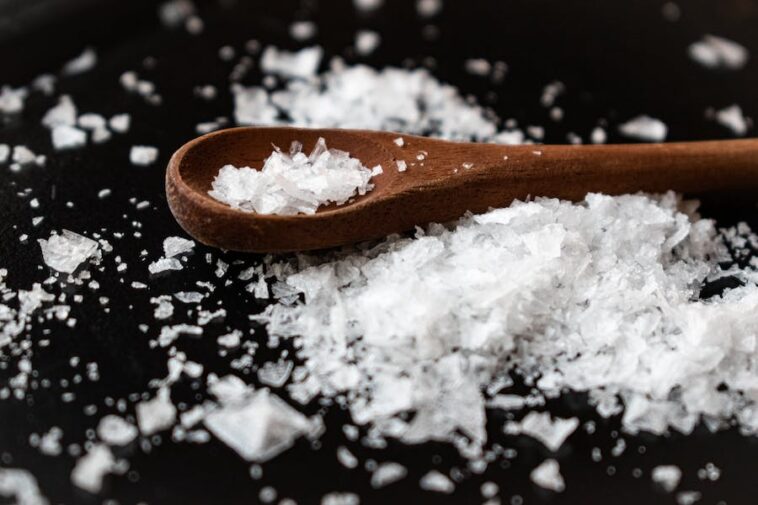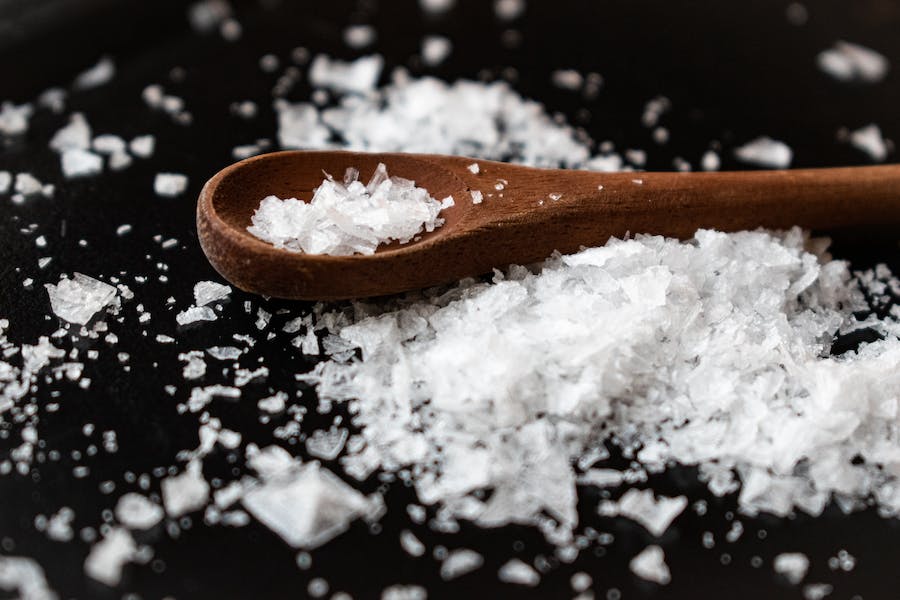Welcome to our latest blog post where we dive into a common question for outdoor enthusiasts and gardeners alike: “Does Epsom Salt Help Poison Ivy?” If you’ve ever had a brush with this notorious plant, you know the discomfort and itchiness that follow can be relentless. With a myriad of home remedies floating around, it’s important to separate fact from folklore. Epsom salt, known for its soothing properties, often comes up in discussions about natural treatments. But does it work against the wrath of poison ivy? Join us as we explore Epsom salt’s effectiveness in relieving this itchy predicament. Whether you’re a seasoned hiker, a backyard gardener, or simply curious about this home remedy, this post is for you. Let’s uncover the truth about Epsom salt and poison ivy!
Does Epsom Salt Help Poison Ivy?
Yes, Epsom salt can help alleviate symptoms of poison ivy. It is known for its soothing and anti-inflammatory properties, which can reduce itching and irritation. Soaking in an Epsom salt bath may also help dry out blisters. However, it’s important to use it as a complementary treatment along with other recommended remedies and not as a sole solution. For severe cases or additional guidance, consulting a healthcare professional is advised.

Investigating The Epsom Salt And Poison Ivy Connection
Investigating the connection between Epsom salt and poison ivy involves understanding how the properties of Epsom salt might interact with the symptoms of a poison ivy rash. Epsom salt, which is magnesium sulfate, has several properties that could potentially offer relief:
- Soothing Effects: Epsom salt is renowned for its soothing capabilities. When dissolved in a bath, it can help alleviate skin irritation and itching, common symptoms of poison ivy.
- Anti-Inflammatory Properties: The magnesium in Epsom salt may help reduce inflammation. This can be beneficial in lessening the swelling and redness associated with poison ivy rashes.
- Drying Action: Epsom salt baths might aid in drying out the blisters caused by poison ivy. By removing excess moisture, it can potentially accelerate the healing process.
- Absorption Of Magnesium: Some believe that the magnesium in Epsom salt when absorbed through the skin, can help reduce the severity of allergic reactions like those caused by poison ivy.
However, it’s important to note that while Epsom salt may provide symptomatic relief, it does not neutralize the urushiol oil responsible for the rash. Additionally, scientific research specifically focusing on Epsom salt’s effectiveness against poison ivy is limited. As such, it should be used as a complementary treatment in conjunction with other recommended medical remedies, particularly in severe cases.
How To Use Epsom Salt For Poison Ivy Relief
Using Epsom salt for poison ivy relief is relatively straightforward, and it can be a soothing addition to your treatment regimen. Here’s how you can use Epsom salt to help alleviate the symptoms:
Prepare An Epsom Salt Bath: Fill your bathtub with warm (not hot) water. Add about one to two cups of Epsom salt to the bathwater. Stir the water until the salt is fully dissolved. The warm water helps in dissolving the salt and also soothes the skin.
Soak The Affected Area: Gently immerse the area affected by poison ivy in the Epsom salt bath. If it’s not feasible to soak the entire body, you can use a cloth or sponge to apply the Epsom salt water to specific areas. Soak for about 15-30 minutes. This can help reduce itching, soothe the skin, and potentially dry out blisters.
Rinse Off: After soaking, rinse your skin with lukewarm water to remove any salt residue. This step is important to prevent skin from drying out too much.
Pat Dry: Gently pat the skin dry with a clean towel. Avoid rubbing the skin as this can irritate the rash further.
Moisturize (If Needed): If your skin feels overly dry after the bath, you can apply a fragrance-free moisturizer to help keep the skin hydrated. Avoid moisturizers with fragrances or additives that could irritate the rash.
Repeat As Needed: Depending on the severity of your symptoms, you can repeat this process up to three times a day. Monitor how your skin responds to determine the best frequency for your situation.
Remember, while Epsom salt can provide symptomatic relief, it doesn’t cure poison ivy or remove urushiol, the oil that causes the rash. It should be used as part of a broader treatment approach. For severe cases or if you have specific health concerns, it’s always best to consult with a healthcare professional.
Expert Opinions And Research
Expert opinions and research provide valuable insights into the effectiveness of Epsom salt for treating poison ivy. Dermatologists and healthcare professionals emphasize the importance of understanding that while Epsom salt can offer symptomatic relief, it is not a cure for poison ivy rash.
Dermatologist Perspectives:
Many dermatologists acknowledge that Epsom salt baths can help in soothing the skin and reducing inflammation associated with poison ivy. However, they caution that this should not replace conventional treatments like topical corticosteroids, which are more directly effective against the rash. Epsom salt is viewed as a supportive treatment that can complement these primary methods.
Research On Epsom Salt:
Scientific studies on Epsom salt have primarily focused on its general benefits, such as reducing muscle soreness and improving skin health. However, specific research on its effectiveness against poison ivy is limited. The anti-inflammatory and drying properties of Epsom salt are well-documented, but their direct impact on poison ivy symptoms requires more targeted research.
Alternative Remedies Research:
Research into alternative remedies for poison ivy often includes a variety of treatments, ranging from over-the-counter creams to natural solutions like oatmeal baths. In this context, Epsom salt is occasionally mentioned, though it is not the primary focus. The broader field of study into skin irritants and allergies does support the use of anti-inflammatory and soothing agents, which indirectly endorses the use of Epsom salt.
Consensus In The Medical Community:
The consensus among healthcare professionals is that while Epsom salt can be beneficial for easing discomfort caused by poison ivy, it should be used with caution. It’s important for individuals to be aware of their skin’s reaction to Epsom salt and to avoid using it if they experience any adverse effects.
In conclusion, while expert opinions and existing research suggest that Epsom salt can play a role in alleviating the symptoms of poison ivy, they also underscore the necessity of using it as a part of a comprehensive treatment plan. For individuals dealing with poison ivy, consulting with a healthcare professional for personalized advice is always the best course of action.
Additional Tips For Managing Poison Ivy Rashes
Alongside Epsom salt baths, consider these tips for managing poison ivy rashes:
- Immediate Washing: Quickly wash the area with soap and cool water to remove urushiol oil from poison ivy, reducing rash severity.
- Avoid Scratching: Prevent infection and worsening of the rash by not scratching; keep fingernails short.
- Cold Compresses: Apply these to the rash to relieve itching and swelling.
- Use Topical Treatments: Apply over-the-counter creams like hydrocortisone or calamine lotion for itch relief.
- Wear Protective Clothing: In areas with poison ivy, cover skin with long sleeves, pants, and gloves.
- Oral Antihistamines: These can help reduce swelling and itching but should be used as directed by a healthcare provider.
- Recognize Severe Reactions: Seek medical attention for difficulty breathing, facial swelling, or extensive rashes.
Consult a Healthcare Professional: For persistent or severe symptoms, get professional medical advice.
Conclusion
In conclusion, while Epsom salt may offer some relief from the symptoms of poison ivy, it’s not a cure-all solution. Its soothing and drying effects can be beneficial, but it’s best used in conjunction with other recommended treatments. Always consult with a healthcare professional for severe reactions or concerns about the best treatment approach for your situation.
Poison ivy encounters are never pleasant, but understanding effective remedies can make a significant difference in managing the discomfort. So, the next time you’re faced with the question, “Does Epsom salt help poison ivy?” you’ll know that while it’s not a magic solution, it could be a helpful part of your relief strategy.





